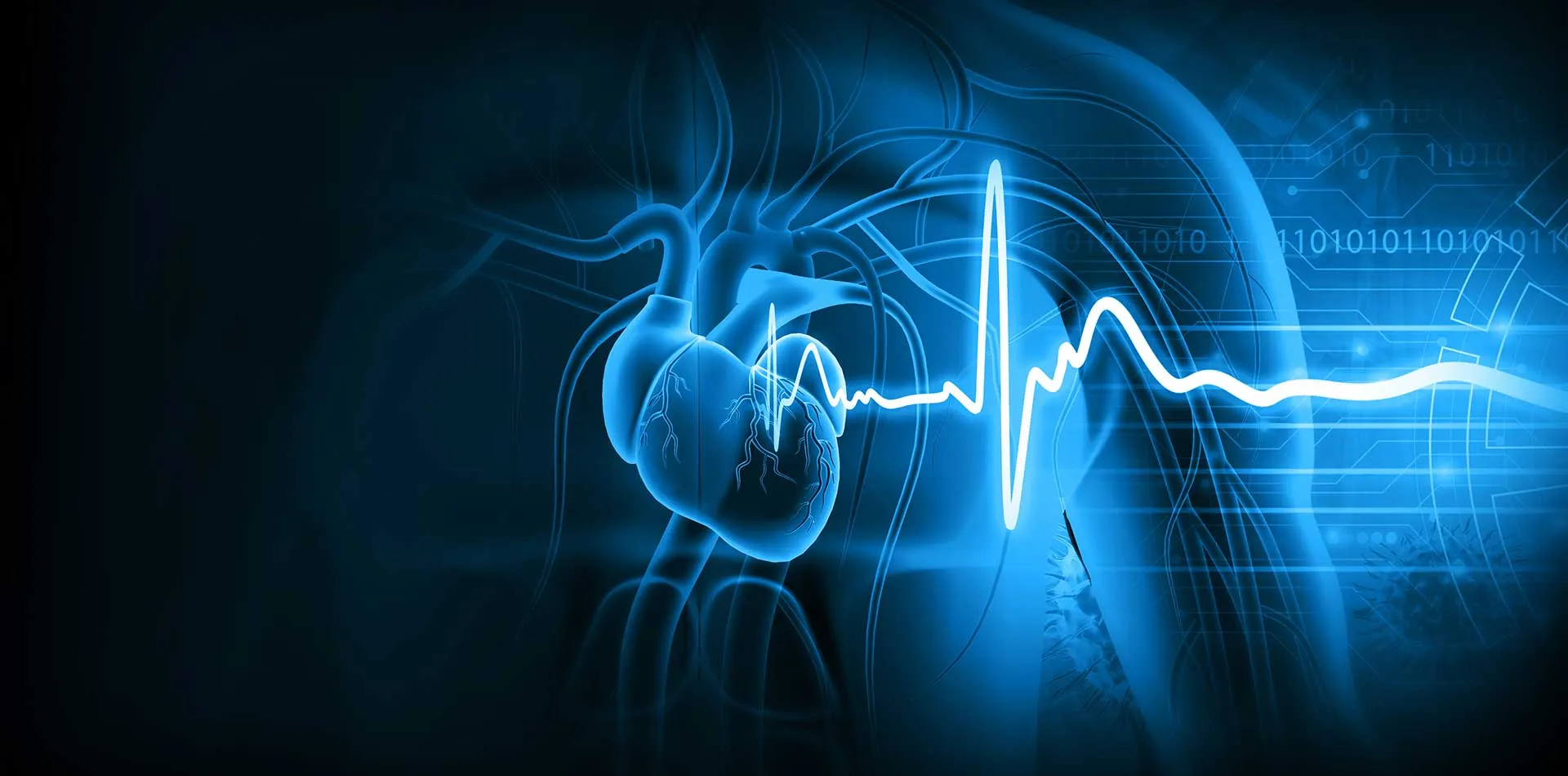
Cardiomegaly, known as an enlarged heart, isn't an ailment but rather a symptom of another disease. Chest X-rays and other tests are needed to diagnose the condition that leads to causing an enlarged heart.
An enlarged heart can result from short-term strain on the body, like pregnancy, or a medical condition, such as weakening the heart muscle, coronary artery disease, heart valve problems, or abnormal heart rhythms.
Some conditions may result in the heart muscle becoming thicker or making one of the heart's chambers expand, causing the heart larger. Based on the state, an enlarged heart may be temporary or permanent.
An enlarged heart is treatable when correcting the cause. Treatments usually include medications, medical procedures or surgery.
An enlarged heart sometimes may show no signs, but for some people, it may indicate symptoms of shortness of breath, abnormal heart rhythm (arrhythmia) and swelling (edema).
Get emergency medical care when you have any of these signs chest pain, severe shortness of breath, fainting and discomfort in other areas of the upper body, like one or both arms, the back, neck, jaw, or stomach. Early detection helps in the treatment; consult the doctor when you have concerns about the heart.
An enlarged heart results from conditions that make the heart pump harder than usual or damage the heart muscle. Sometimes the heart becomes bigger and weak for unknown reasons, known as idiopathic cardiomegaly.
Some heart conditions like congenital by birth, damage from a heart attack or an abnormal heartbeat (arrhythmia) may lead to an enlarged heart.
Other conditions associated with this condition are:
• High blood pressure where the heart pumps harder to deliver blood to the rest of the body, enlarging and thickening the muscle or enlarging the heart's upper chambers. It causes the left ventricle to enlarge, weakening the heart muscle.
• Heart valve disease. There are four valves in the heart to keep blood flowing in the right direction. When the valves are damaged due to rheumatic fever, a heart defect, infections (infectious endocarditis), an irregular heartbeat (atrial fibrillation), connective tissue disorders, or certain medications and radiation treatments for cancer, it may enlarge.
• Cardiomyopathy is a heart condition that makes it challenging for the heart to pump blood throughout the body, and when it progresses, the heart may enlarge trying to pump more blood.
• High blood pressure in the artery that connects the heart and lungs (pulmonary hypertension) leads to the heart pumping harder to move blood between the lungs and heart, resulting in the right side of the heart enlargement.
• Fluid around the heart (pericardial effusion), accumulating fluid in the sac that contains the heart, causes the heart to appear enlarged on a chest X-ray.
• Blocked arteries in the heart - coronary artery disease cause the fatty plaque in the heart arteries to obstruct blood flow through the heart vessels, leading to a heart attack. When a section of the heart muscle dies, the heart has to pump harder to get adequate blood to the remaining part of the body, causing it to enlarge.
• Low red blood cell count (anemia) happens when there aren't enough healthy red blood cells to transport sufficient oxygen to the tissues. Untreated, chronic anemia may lead to a rapid or irregular heartbeat, causing the heart to pump more blood, making up for the shortage of oxygen in the blood.
• Thyroid problems - an underactive thyroid gland (hypothyroidism) and an overactive thyroid gland (hyperthyroidism)
• Excessive iron in the body occurs when it doesn't adequately metabolize iron, producing it in various organs, including the heart. It leads to an enlarged left ventricle due to the weakening of the heart muscle.
• Rare diseases that can affect the heart like amyloidosis, where abnormal proteins circulate in the blood and gets deposited in the heart, interfering with the heart's function and causing it to enlarge.
The risk of developing an enlarged heart rises due to the following risk factors:
• Blood pressure measurements are high, more than 140/90 millimeters of mercury.
• Due to a family history of enlarged hearts or cardiomyopathy, you become more susceptible.
• Congenital heart disease by birth affects the structure of the heart, raising the risk.
• Heart valve disease, which may damage, causing the heart to enlarge.
Complications related to an enlarged heart are:
• Heart failure. An enlarged left ventricle can raise the risk of heart failure, in which muscle weakens, and the ventricles stretch (dilate) to the extent that the heart can't pump blood efficiently throughout the body.
• Blood clots. An enlarged heart is prone to forming blood clots in the lining of the heart. When these clots move into the bloodstream, they may block blood flow to vital organs, resulting in a heart attack or stroke. Clots on the right side of the heart can travel to the lungs, causing a condition called a pulmonary embolism.
• Cardiac arrest and sudden death. An enlarged heart may result in disruptions in the heart's beating rhythm. When heart rhythms become too slow to move blood or too fast to allow the heart to beat correctly, it may cause fainting or even cardiac arrest or sudden death.
Talk to the doctor if there is a family history of conditions that can cause an enlarged heart, such as cardiomyopathy, as early detection supports treating the disease, preventing it from worsening.
Another preventive measure is to avoid tobacco use. Also, controlling high blood pressure, cholesterol and diabetes are helpful to lessen the risk of an enlarged heart and heart failure with a healthy diet, exercise and possibly medications.
Patient Experience